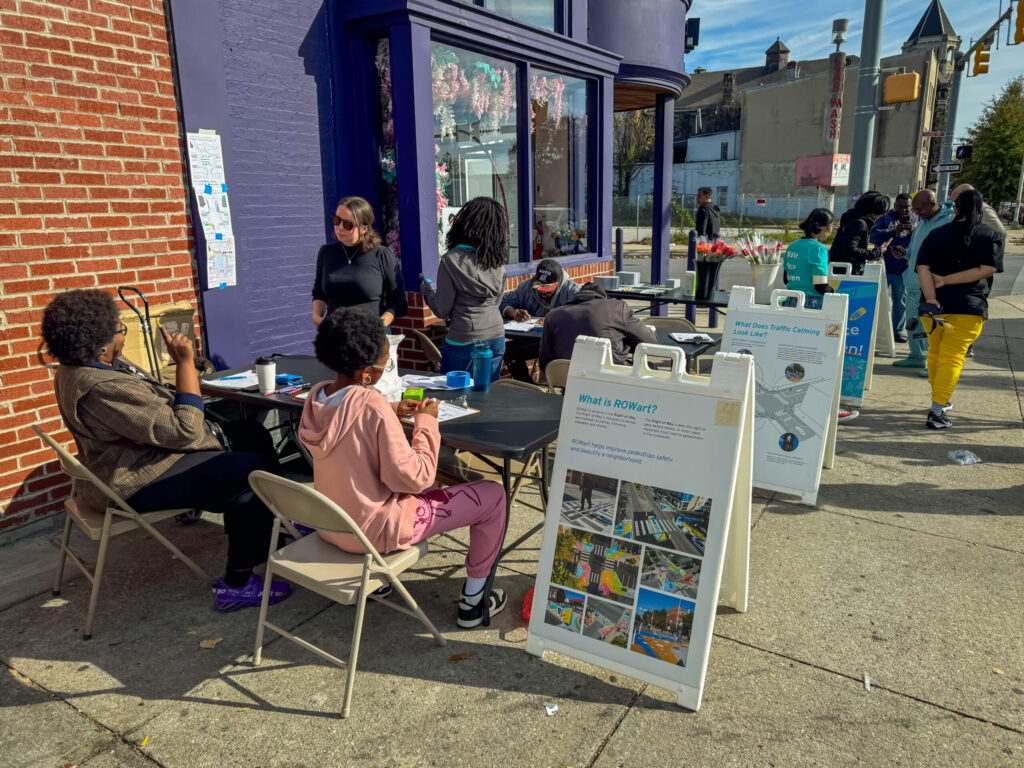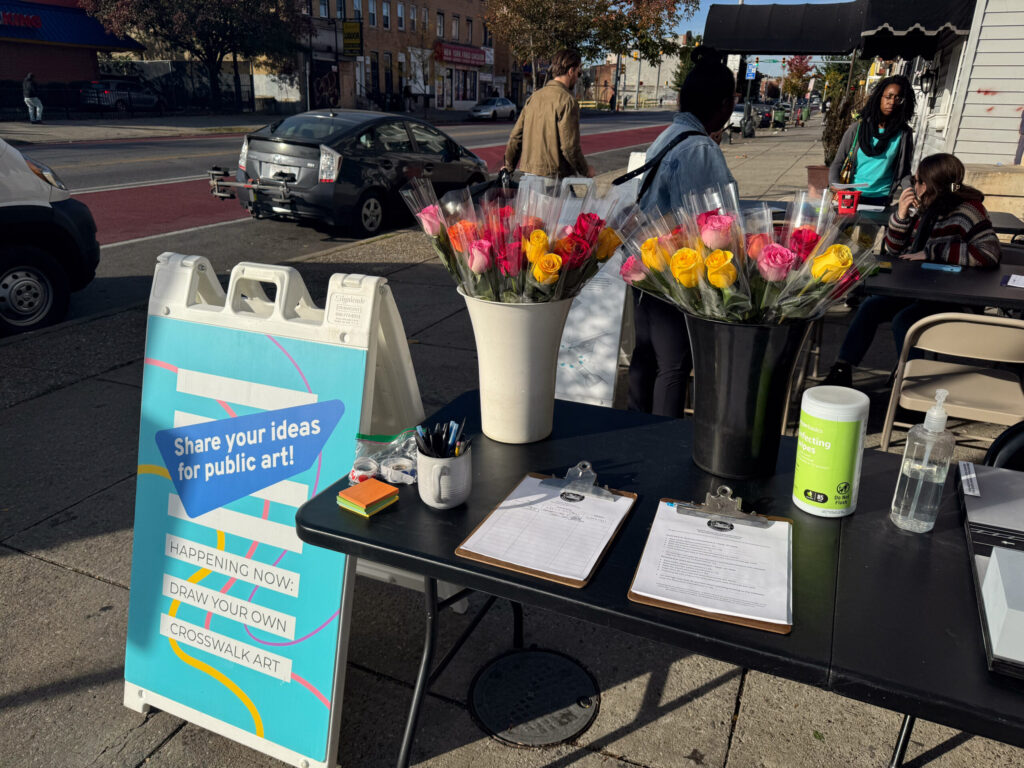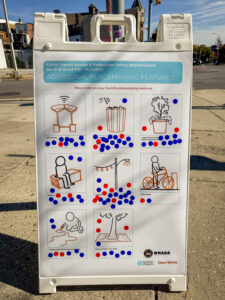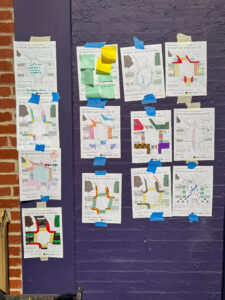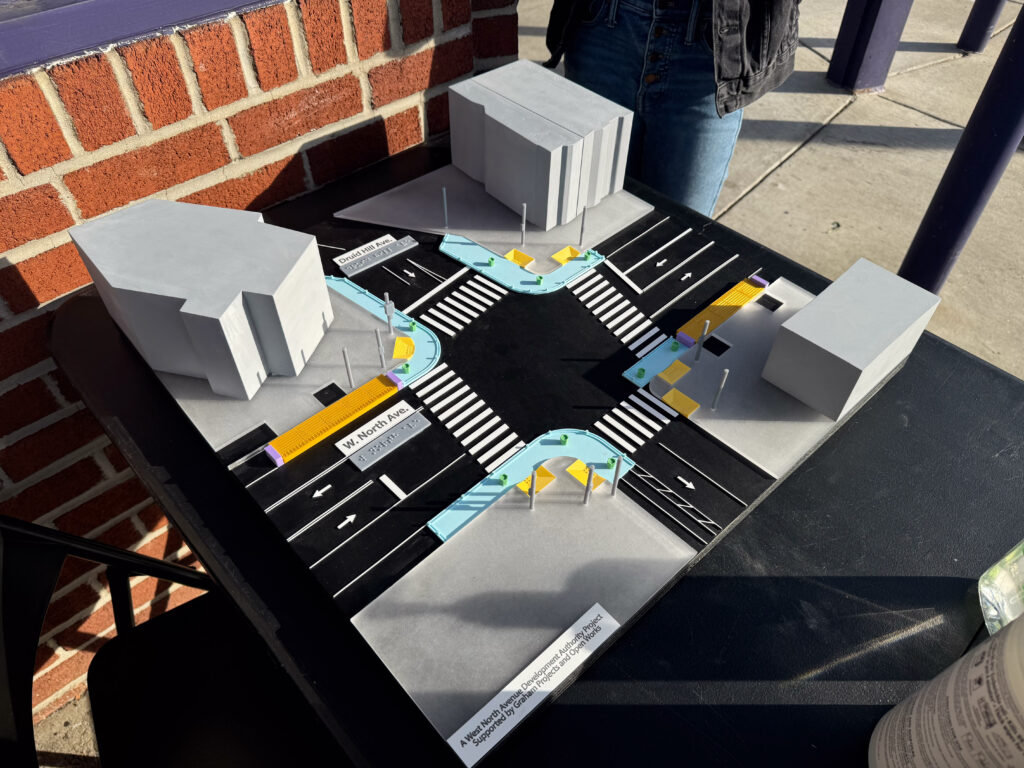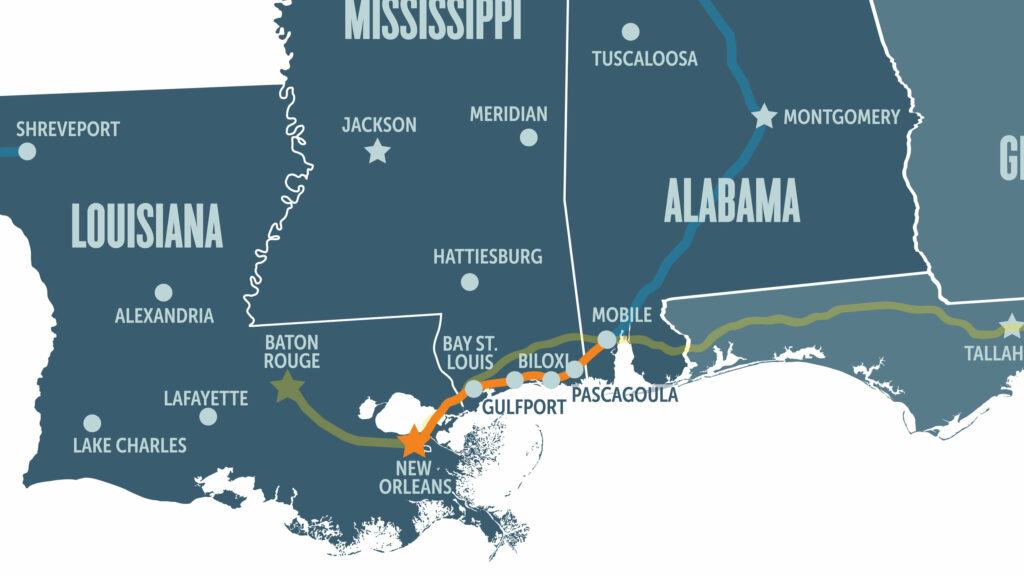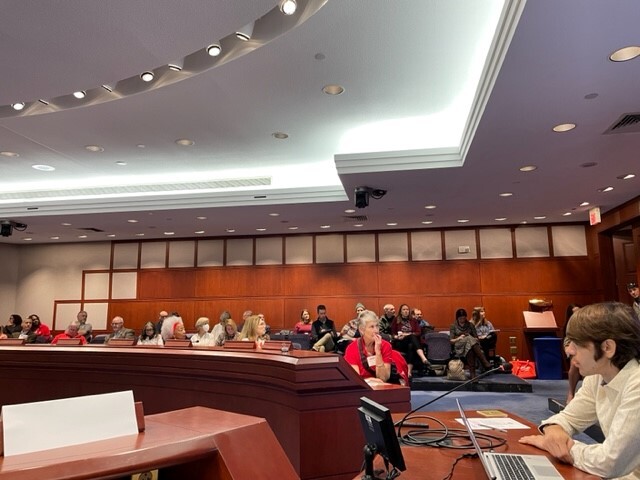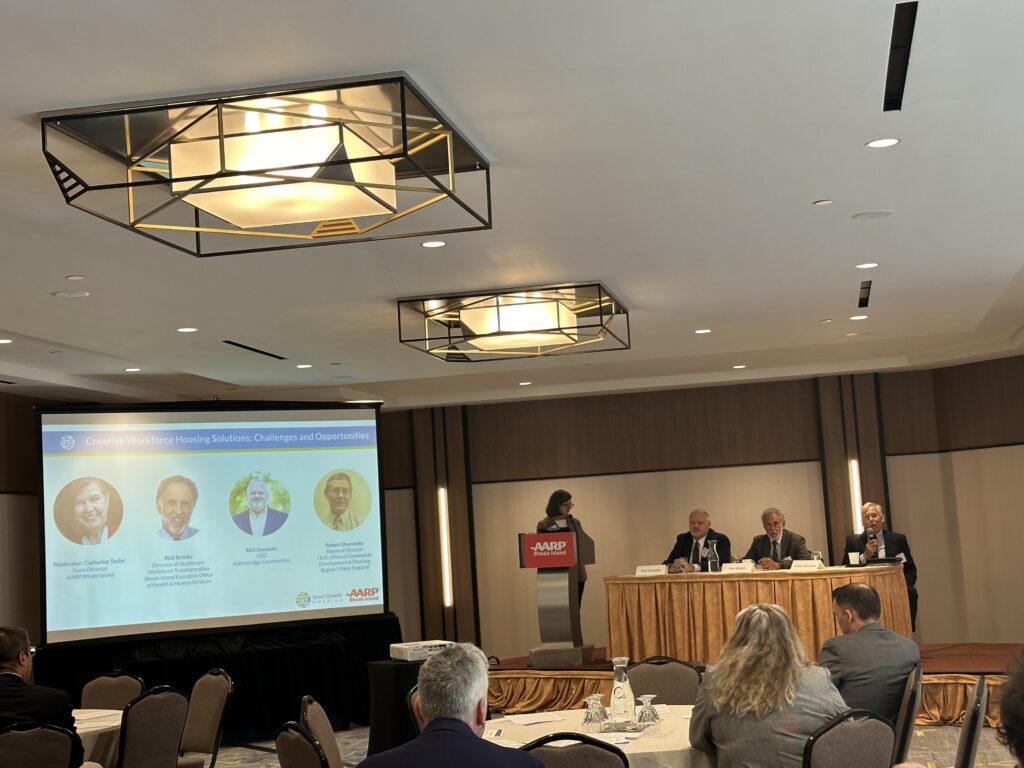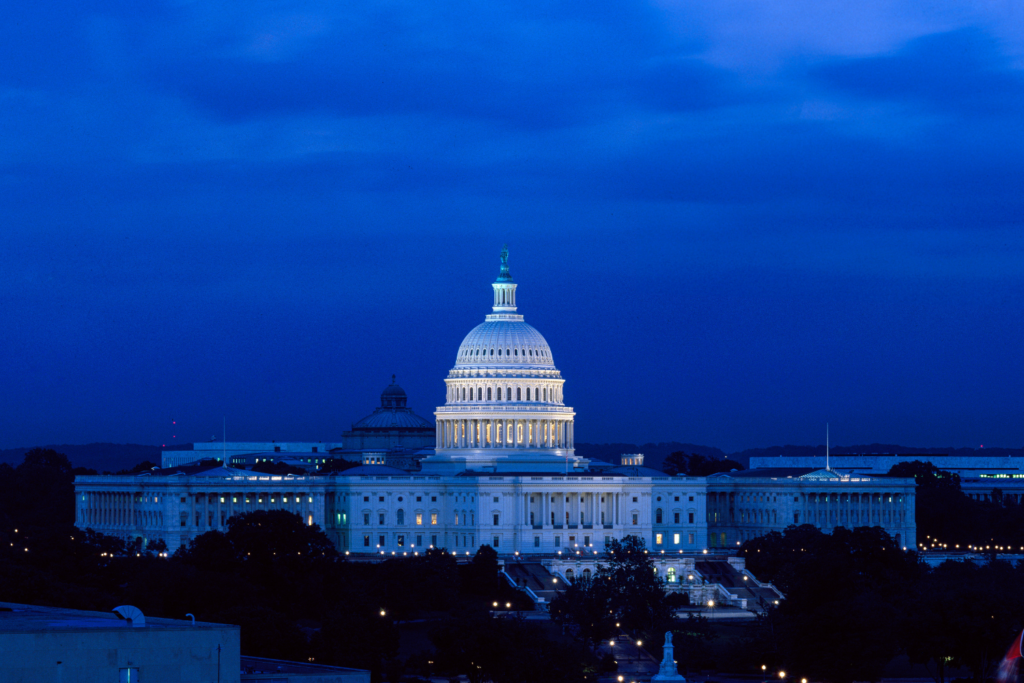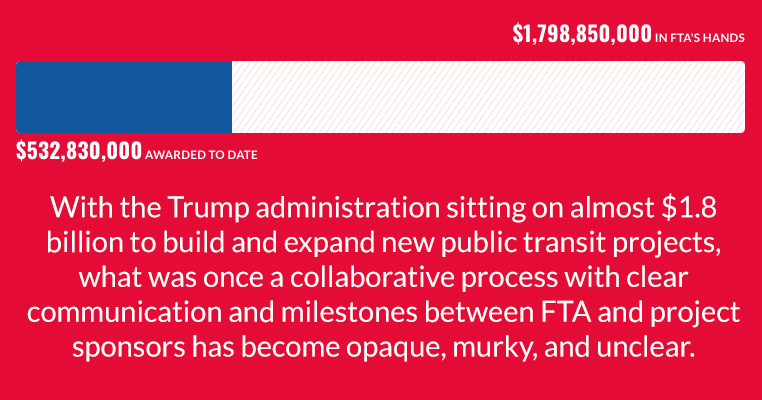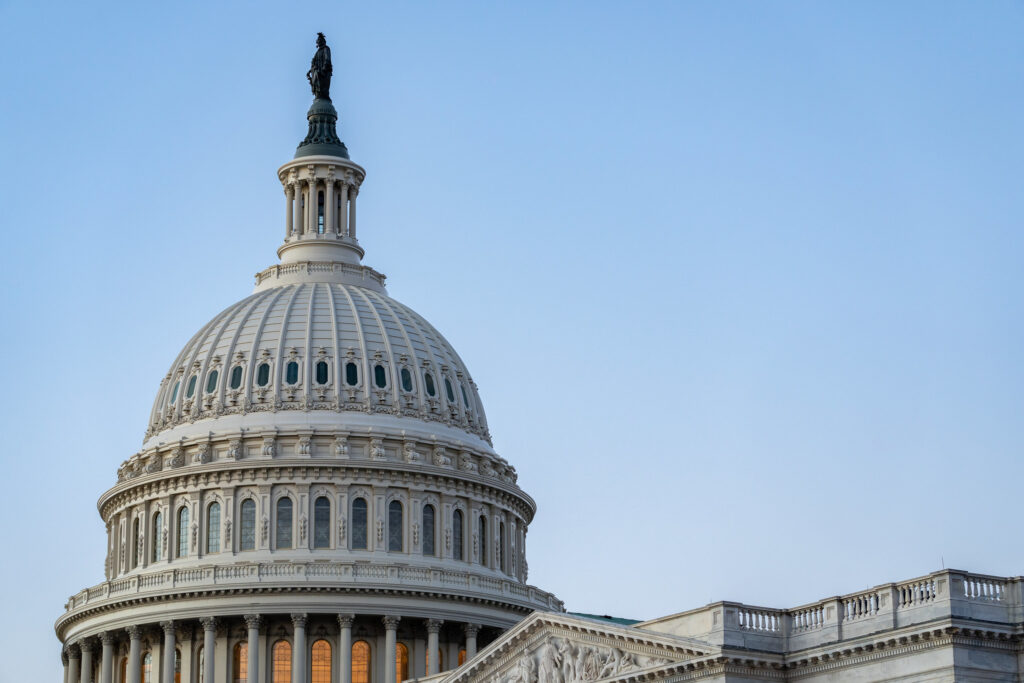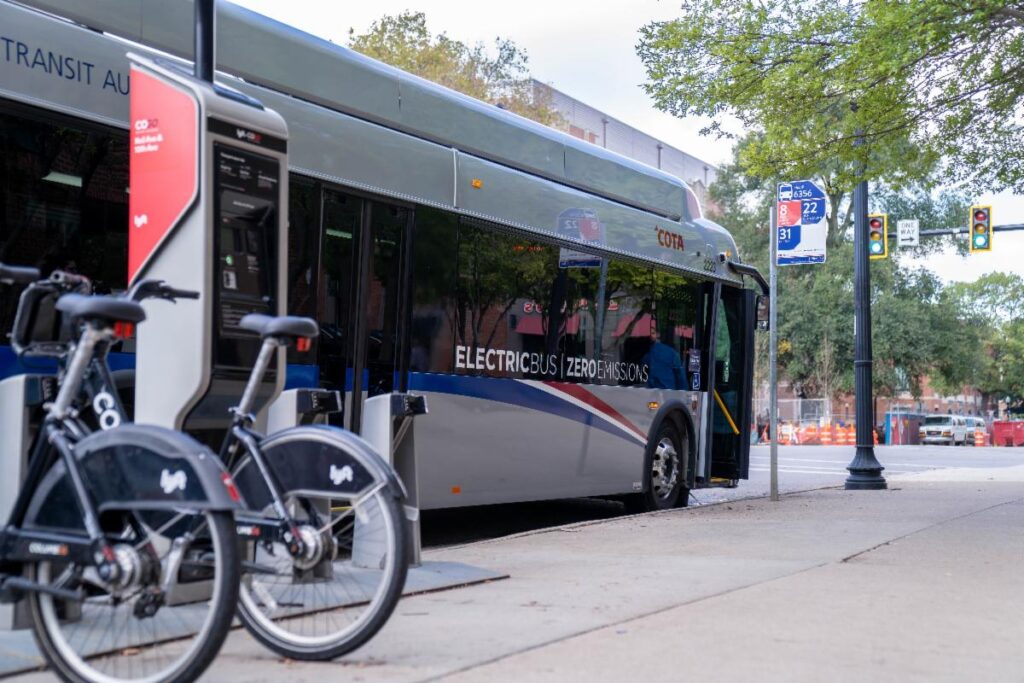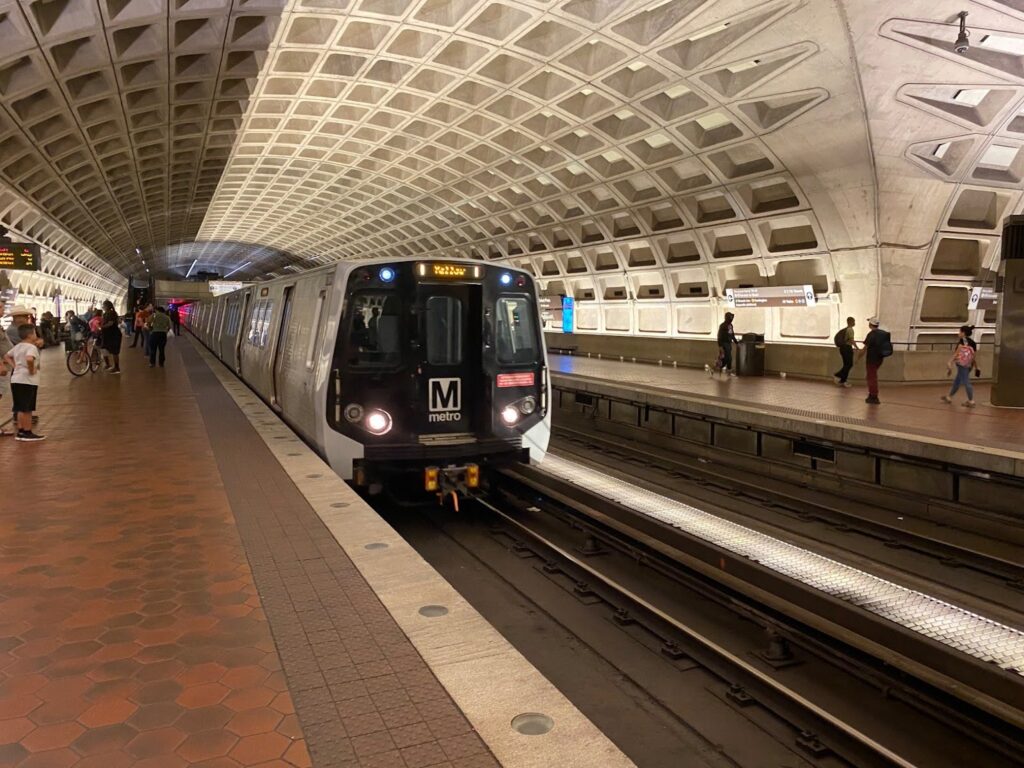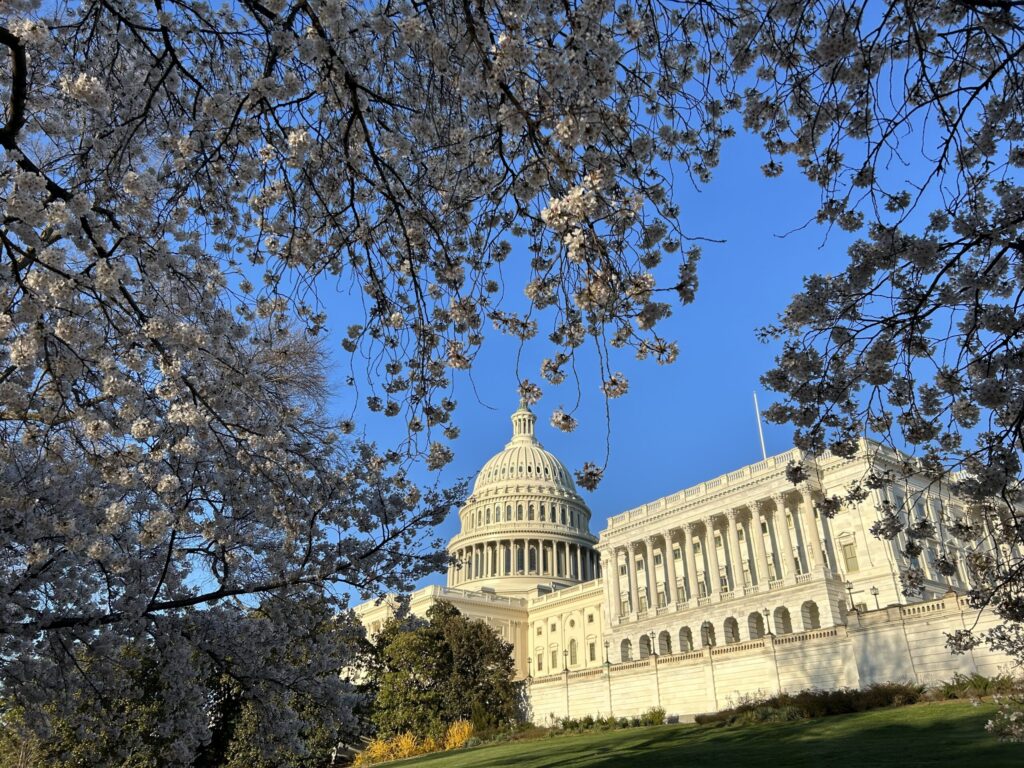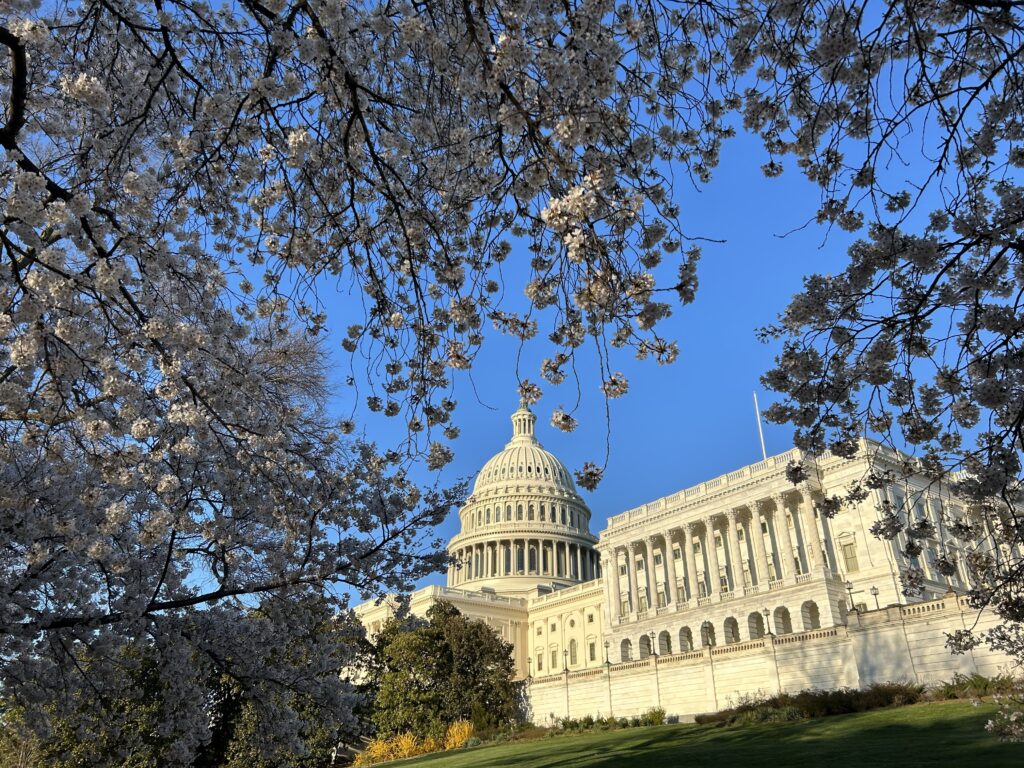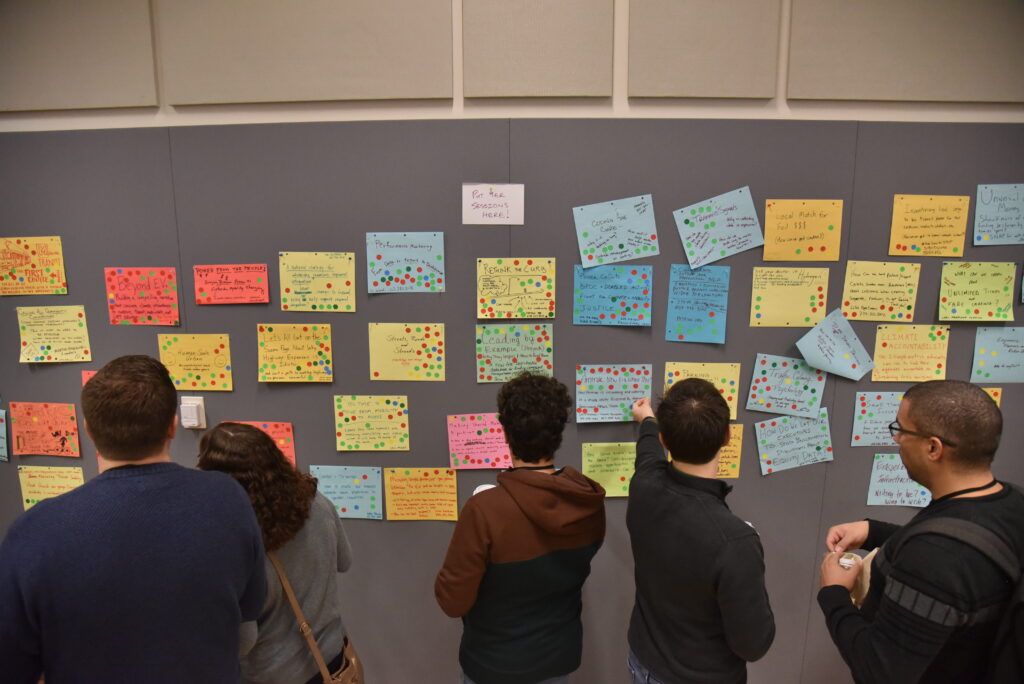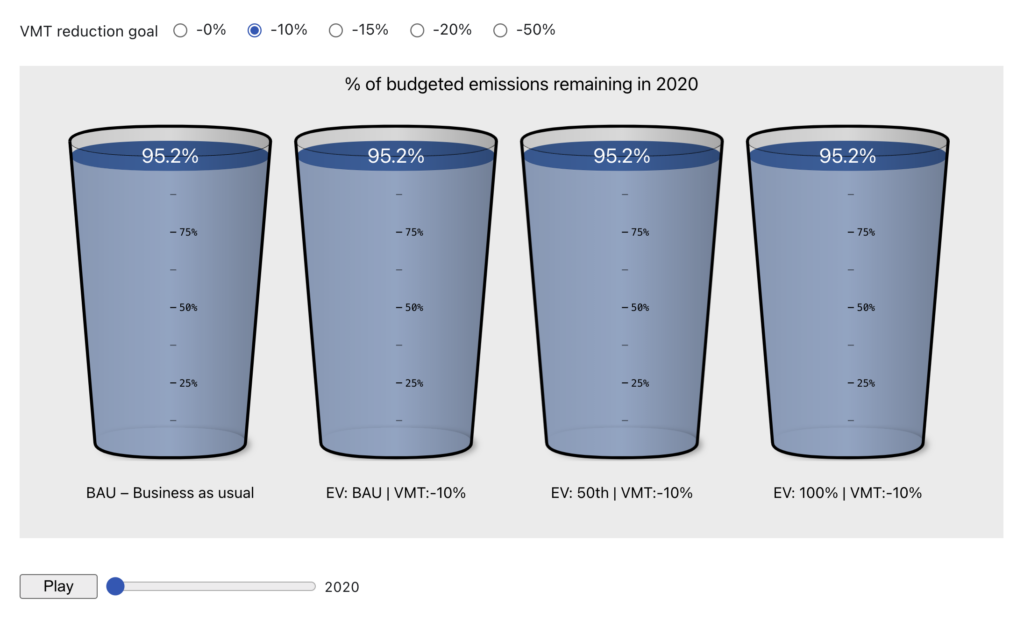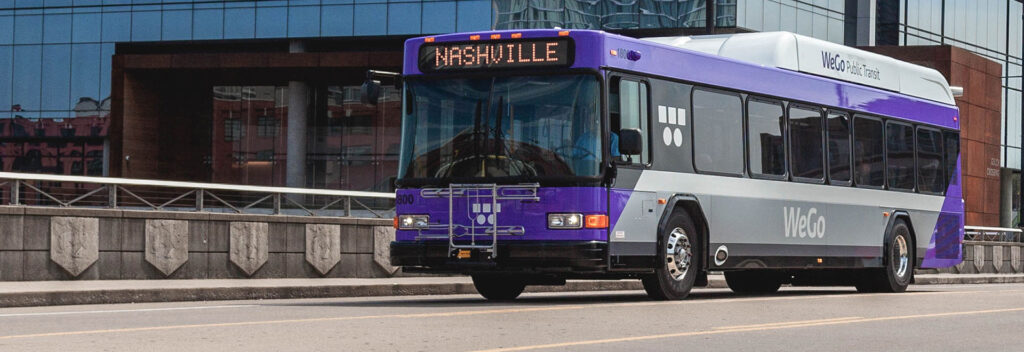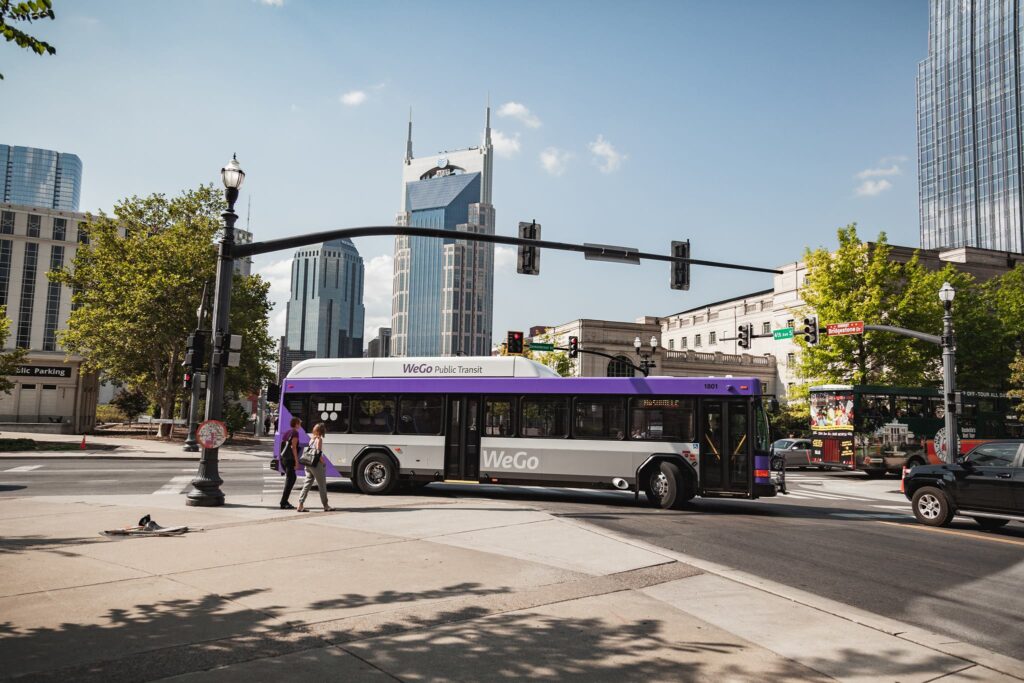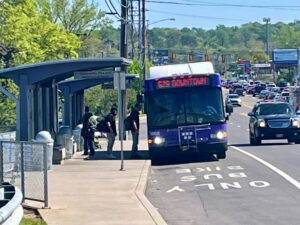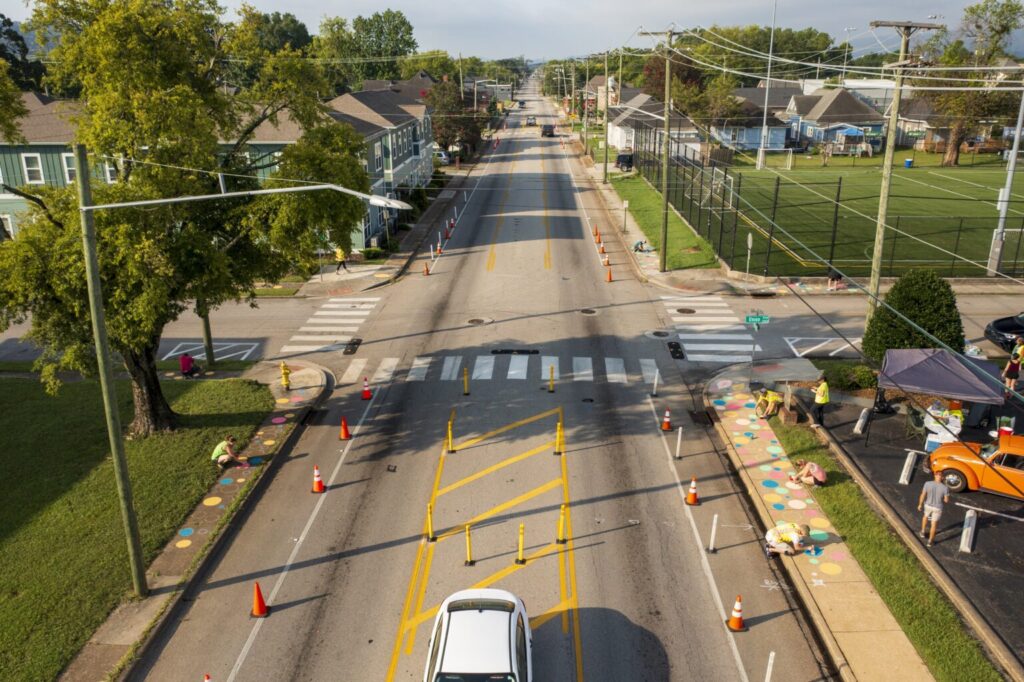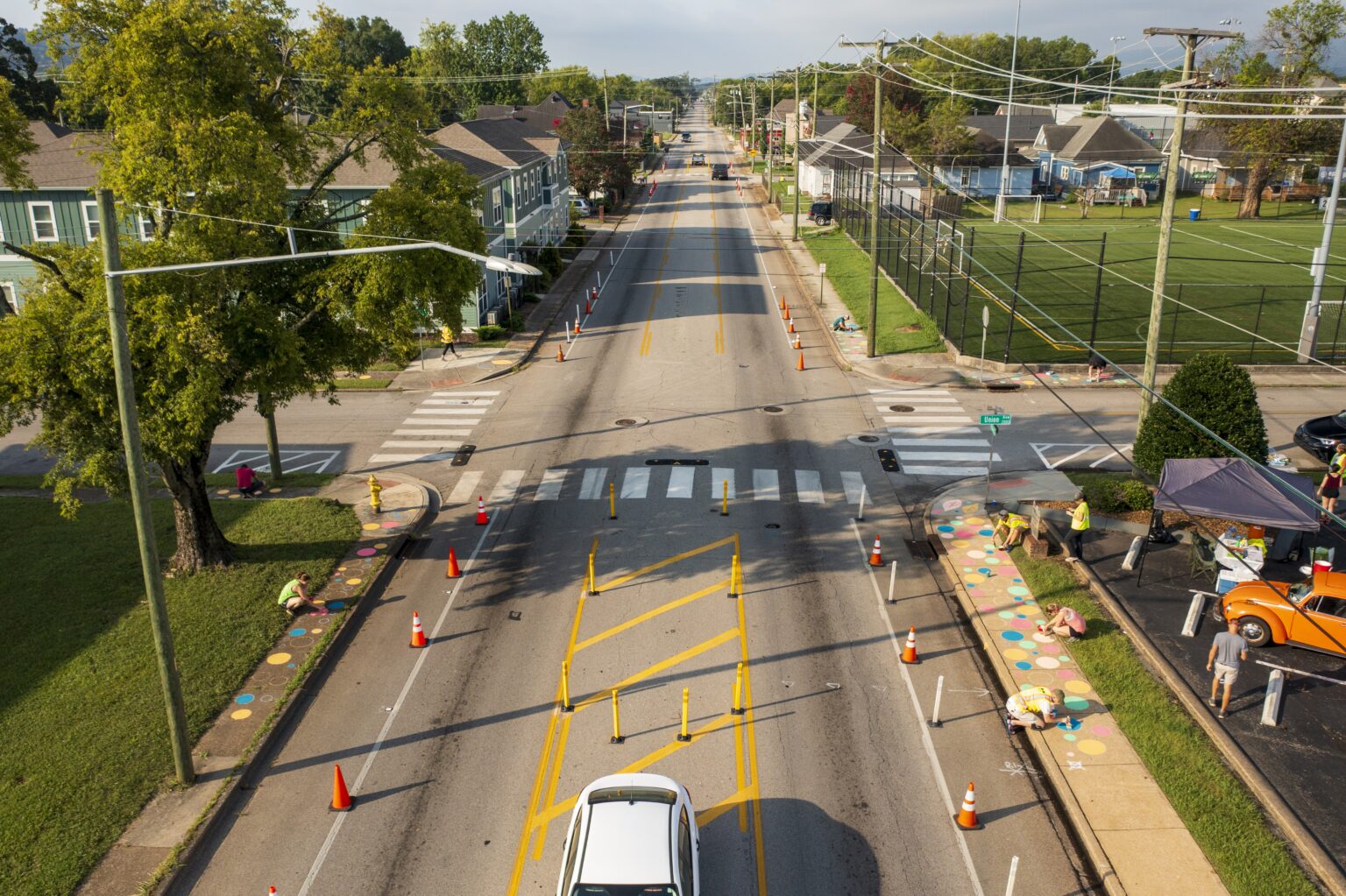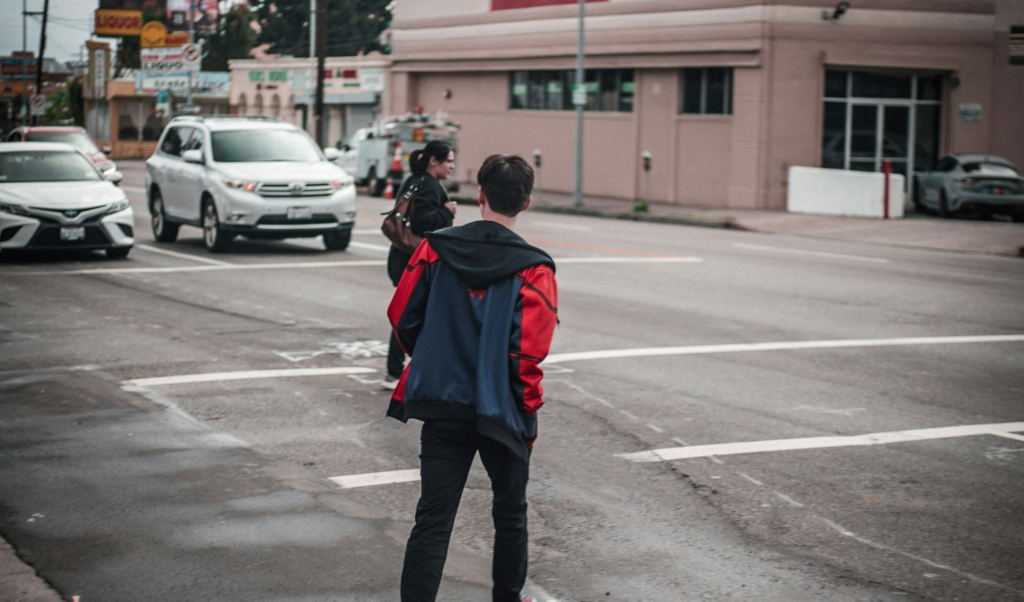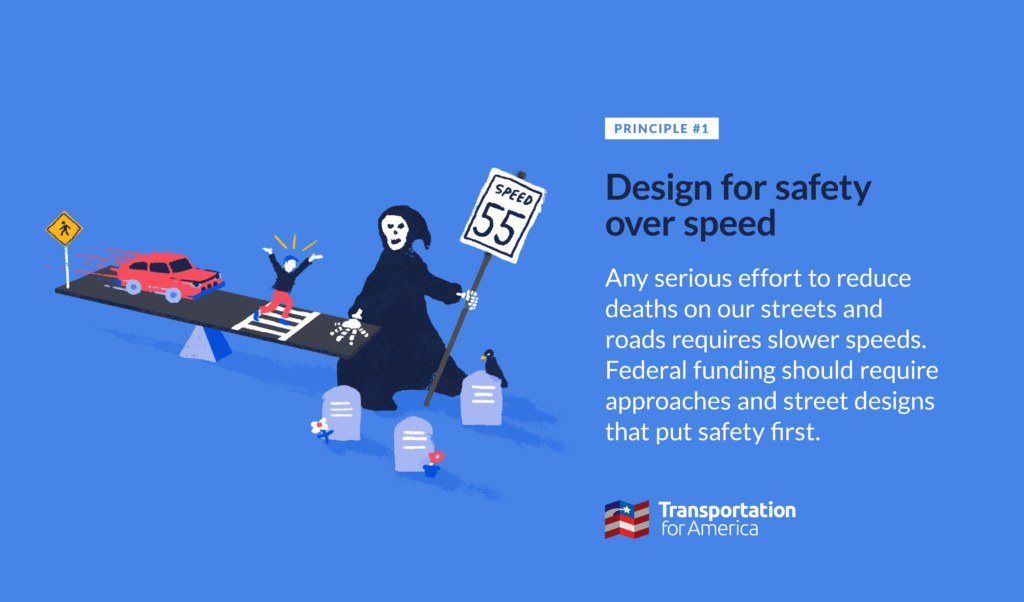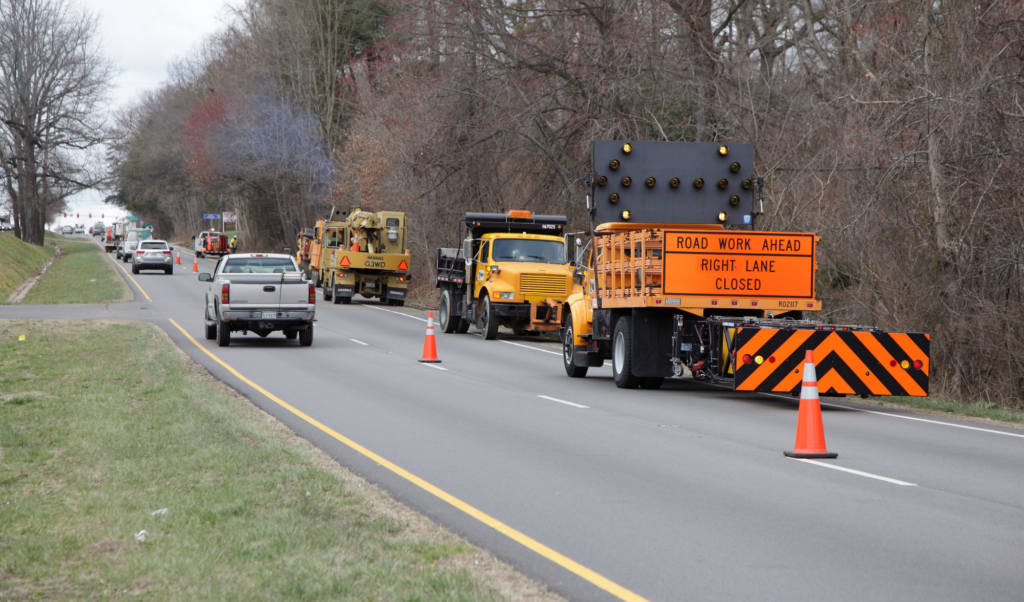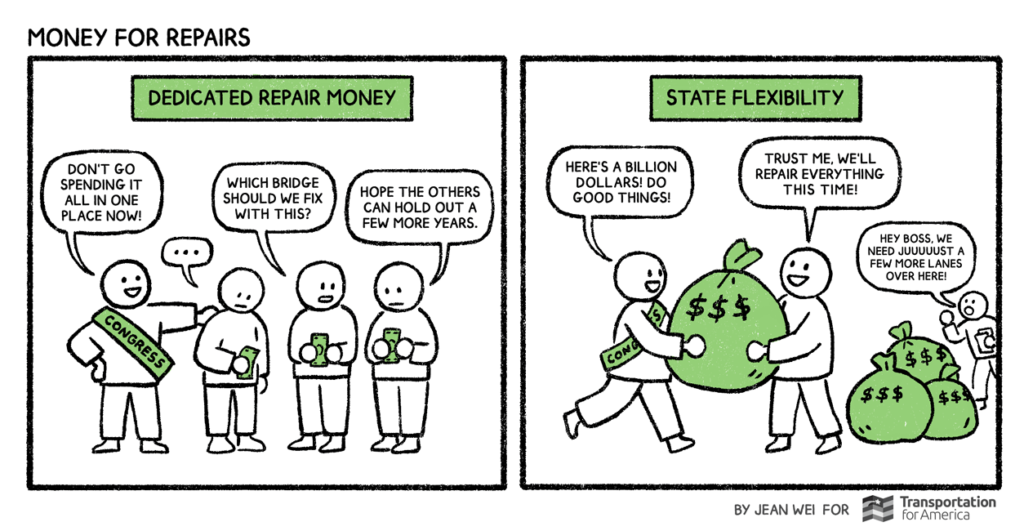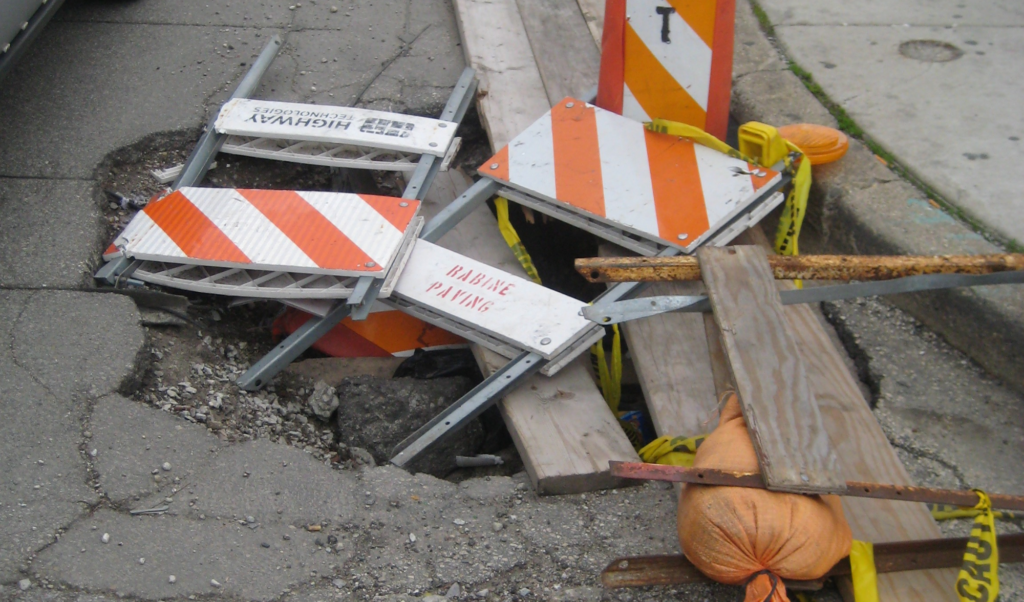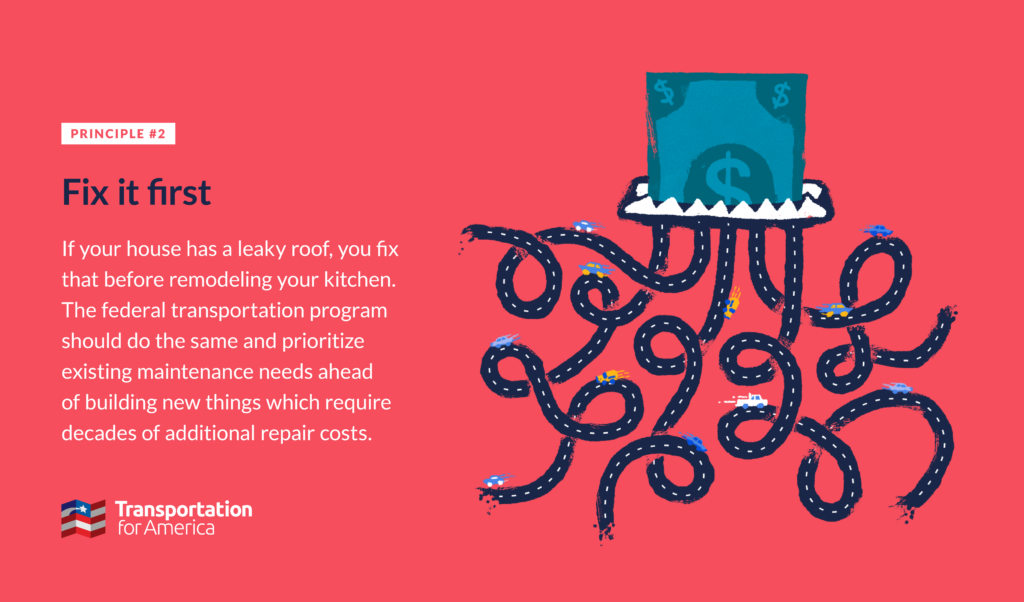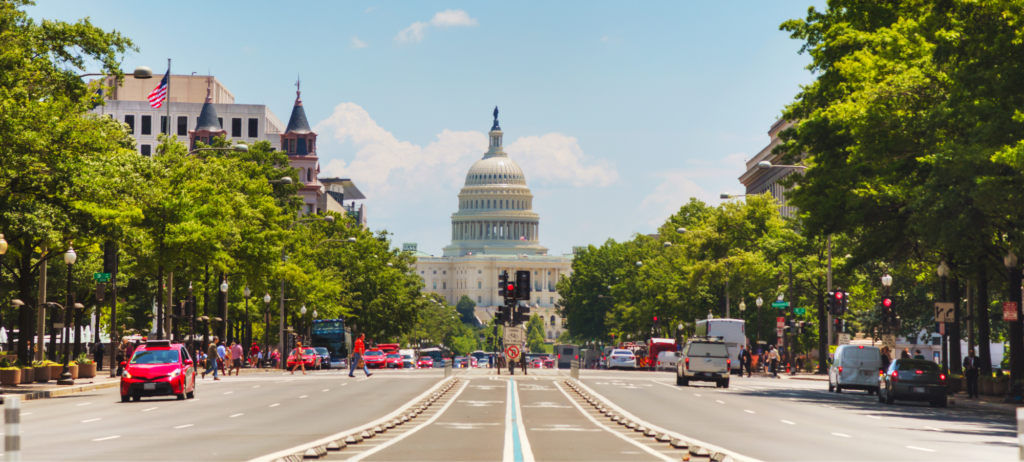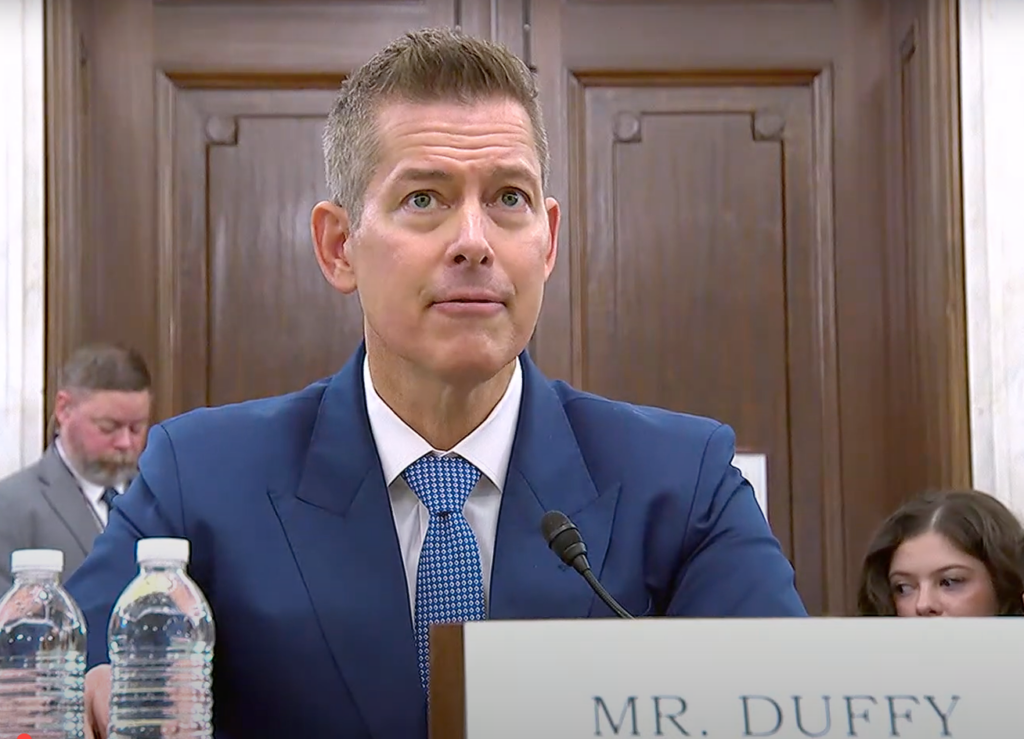
Last Wednesday (Jan. 15), former Congressman Sean Duffy faced questions from the Senate Commerce Committee, tasked to vet the next Transportation Secretary. Here are three things T4America gleaned from the hearing as opportunities for working with Secretary-designate Duffy.

Image Source: CSPAN (37:13)
While it’s difficult with almost any eventual USDOT Secretary to try and anticipate precisely how they’ll choose to run the department, these confirmation hearings (and the nominee’s record to some degree) can help give a rough sense of what they care about before they are confirmed. And the limited amount of time to prepare in this specific case might mean that this hearing is more of a look at Duffy’s priorities and interests rather than revealing what he may be directed to prioritize by the president and the executive branch.
As one example of how these differences are already emerging, Duffy responded to questions about future spending under the infrastructure law (the IIJA) by pledging to follow that law and see those funds spent. Yet, on day one of the Trump presidency, President Trump issued an executive order aimed at suspending all IIJA funding for 90 days. (This could be challenged in the courts, as those spending decisions are determined by Congress and existing law.)
It won’t be clear for quite some time what the Trump administration wants to accomplish in transportation—which appears to be farther down their list of priorities. But with that in mind, here are three areas where some doors could be opened to collaborate or work with USDOT over the next four years.
1) Safety
Mr. Duffy strongly affirmed his desire to leave a legacy at USDOT on safety. We suspected this could be an area where he brings a strong interest due to his personal connection to the issue: His wife Rachel was critically injured in a traffic crash years before they were married, he was on an Amtrak train that crashed in West Virginia that killed a truck driver, and has frequently spoken about safety issues.
Questions from the committee touched on various safety issues, from autonomous vehicles, to passenger and freight rail (including the issue of blocked railroad grade crossings impeding traffic and emergency response), and briefly on active transportation safety. On that note, Duffy said he would be willing to explore and engage in advancing and eventually implementing the Sarah Langenkamp Active Transportation Safety Act, which would make changes to the federal Highway Safety Improvement Program to help spur states to build and complete protected bike and pedestrian networks. Mr. Duffy even spoke about the need for proactive federal rules on autonomous vehicles that would focus on safety, which is not the direction Congress has tried to go in over the past few years. With roadway fatalities continuing to rise, despite advances in vehicle safety technology and innovation that the committee spent extensive time on, this area could be an opportunity to work with the incoming USDOT Secretary. Automated vehicles should not be tested without greater transparency and safeguards. With a legacy emphasis on safety, Secretary-nominee Duffy also provides an opening to focus on addressing existing standards for the nation’s roadways that are inherently Dangerous by Design and need to be fundamentally reworked.
2) Multimodal transportation investments
Members from both parties of the committee raised issues that touch on a wide spectrum of different modes of travel, including passenger rail, the resilience of public transit operations, and rural community connectivity.
Sen. Brian Schatz (D-HI) reminded Mr. Duffy that he is up to “be the Secretary of the Department of Transportation, not just the Department of Cars.” Mr. Duffy expressed support for a multimodal transportation point of view, in addition to supporting a robust and innovative automotive market that is inclusive of electric vehicles. (This is another area where differences with the President are already emerging: the President is trying to reverse incentives and mandates for electric vehicle adoption.)
Senators Baldwin (D-WI) and Duckworth (D-IL) also highlighted the need for Mr. Duffy to not forget and integrate the mobility needs of 70 million Americans with disabilities, who may be mobility, cognitive, vision, or hearing impaired. Light on details, Mr. Duffy did repeat on multiple occasions the need to support a transportation network that facilitates consumer choice. This leaves room for advocates and others to help USDOT understand their charge to promote safe and efficient movement of all Americans, regardless of ability and the community they live in.
3) Transparency and streamlining
This could be one of the areas of common ground for making much-needed reforms to the (arduous) process of how transportation projects get approved and built—especially transit projects—and how much they cost. Nearly every Senator touched upon implementing the 2021 infrastructure law and other related congressional mandates, project delivery, the NEPA process, and how to speed up efficient and cost-effective transportation projects. Over and over we find transportation projects held up over onerous permitting and review processes, which rightfully slow down highway boondoggles, but also hold up solid public transit and zero-emission mobility projects. There’s a dire need to shake up the status quo to streamline beneficial community-led projects and hold back projects that divide by design.
Senator Fischer (R-NE) requested that Duffy tackle the issue of guidance consistency, when USDOT headquarters says and interprets a policy or guideline, then FHWA division offices use unique, creative interpretations of the same policy or guideline. Senators Cruz (R-TX), Capito (R-WV), and Cantwell (D-WA) requested firm commitment for transparent delivery of information to the committee, especially on how USDOT is evaluating projects for discretionary programs and program effectiveness.
A constant concern from transportation stakeholders has been if existing infrastructure laws would be undercut by the incoming administration. Mr. Duffy has indicated he intends to abide by congressional mandates and laws if confirmed as USDOT Secretary. There is an opening to engage Secretary nominee Duffy on the standardized reporting, oversight, and efficient use of federal transportation dollars.
Looking ahead
Mr. Duffy is likely to enjoy a relatively smooth confirmation process. With the next surface transportation reauthorization looming, Duffy’s USDOT will be charged with helping Congress understand what can or should be changed with the overall transportation program to produce better outcomes. While it will take some time for their agenda to emerge, these openings in safety, multimodal transportation investments, and transparency revealed in Mr. Duffy’s confirmation hearing could provide some possible pathways to make a substantial impact on U.S. transportation.




